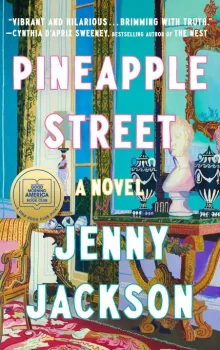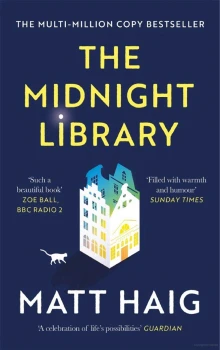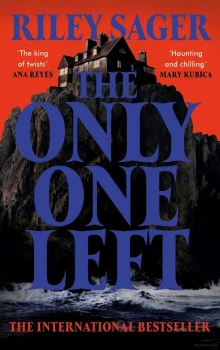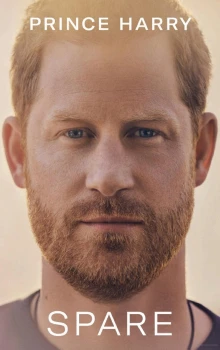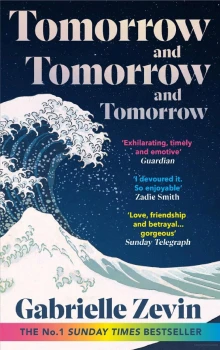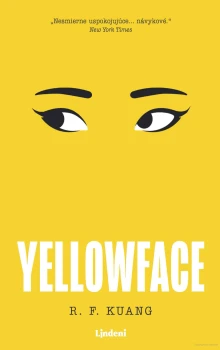TWO
Georgiana
Georgiana had a problem, and it was mostly her traitorous cheeks. She had always blushed easily, but lately it felt like she had become some sort of character out of science fiction who wore their emotions entirely on their skin. She would feel the heat rising in her face, a slight prickle on her neck, and then—poof—scarlet.
What had for years been a mostly adorable trait had turned into a professional liability now that Georgiana had a real job and, problematically, an enormous, goofy, childlike, and mortifying crush. His name was Brady and she couldn’t even look at him in meetings. They had hardly ever spoken—he was older than her, maybe early thirties, and a project manager who had no reason ever to even think of the small pink person frantically glaring at the floor—but whenever Georgiana passed him in the halls, sat in the same conference room, or ran into him at the copier, she had to avert her eyes like he was a solar eclipse and she needed those dorky paper glasses.
They worked for a not-for-profit and the offices were in an old mansion on Columbia Place that was still set up like a home. To get to her desk, Georgiana walked through a beautiful foyer where their receptionist, Denise, sat behind a heavy mahogany desk, up a spiral staircase, through a grand room that they used alternately as their conference room and cafeteria, then through a large bedroom where four desks were arranged for the grant-writing department, and into a tiny space that must have originally been for a maid or a wet nurse. They were all crammed in like sardines, but it was wonderfully charming. Georgiana’s little two-person office had a big window that looked west over the Promenade out across the East River. The mansion’s bathrooms were scattered throughout the house and decorated with maps of the various regions where they worked, and hanging over the printer, along with instructions on refilling toner, was a gilded portrait of a duchess taking a harp lesson.
The mansion belonged to their founder, heir to a pharmaceutical fortune. He had traveled the world as a young man and become aware of the lack of medical care available in developing countries and set up a not-for-profit to teach local organizations how to build sustainable health systems. They operated mostly on grants from places like the Gates Foundation and the World Bank, and also had some wealthy private donors. Georgiana was in the communications department, so her job was to suck up to the aforementioned donors, and to cull photos of their work abroad for their website, edit articles about their projects for the newsletter, and manage their social media accounts. It wasn’t because she was especially interested in social media, but because she was under thirty everyone assumed she would be, and it helped her land the job to casually mention that she had eighteen hundred followers on Instagram. (Who didn’t? All you needed to do was remove your privacy settings and post the occasional picture of your cute friends at a party.)
But this was the main difference between Georgiana and Brady: she was lowly support staff, fangirling the organization’s successes in the field and writing it up in the newsletter, and Brady was at the center of the action. He had been to Afghanistan and Uganda, he was featured in the photos Georgiana pored over, speaking to a group of doctors in a makeshift hospital, kicking a soccer ball with adorable kids in front of a banner with information on vaccines, looking deeply into the eyes of a doctor in India as they reviewed their contraceptive distribution plans. He was the star of the play, and she was painting the sets, simultaneously desperately wishing he would notice her and dreading the moment when he might, sure her cheeks would go aflame.
It was a Friday, and Georgiana was standing at the mailboxes under the stairs sorting envelopes by destination, domestic into one bin and international into another. As she sorted, she double-checked each address to make sure it looked right—she had updated their contacts so that they could do giant mailings without having to enter the addresses individually, but it was still a slightly imperfect system. She was puzzling over an envelope, lost in thought, when a voice startled her.
“You okay?” It was Brady. He leaned past her to retrieve his mail from a box with his name below it.
“Yeah, just trying to figure out if this one is addressed correctly.” Georgiana held the letter out so that he might see it. They were standing so close she could have kissed him if she lurched fast enough. Oh my God, why would I lurch-kiss this person? She briefly hated her own brain.
“It looks fine. What’s the problem?” Brady asked.
“But is it domestic or international? It doesn’t have a country on it,” Georgiana replied, perplexed.
“United Arab Emirates,” Brady read slowly, pointing to the bottom line of the address. Was the envelope shaking? Georgia felt like it was shaking.
“Right, but shouldn’t there be a country under that?” she asked.
“United Arab Emirates is a country.”
“Oh, I just—” Georgiana stopped talking.
“It’s on the Arabian Peninsula by Saudi Arabia and Oman?”
“Yeah.” Georgiana had literally never heard of it in her life.
“Dubai is one of the cities there.”
“Right, with those Palm Tree islands you can see from outer space.” Georgiana nodded her head vigorously. She knew Dubai. “And the shopping malls and sports cars.”
“Yeah. But that’s not the part where we’re trying to provide health care.”
“Right, right, no, no,” Georgiana agreed. Was it possible she had ever sounded like a bigger idiot? She wasn’t sure.
“Anyway, the envelope is good to go.” Brady smiled—or maybe he was laughing?—and gave her a quick nod before he walked off with his mail.
Georgiana tossed the envelope into the international bin and felt her cheek. Blazing.
That night Georgiana went to a birthday party in Williamsburg and woke up Saturday morning with a hangover so intense she could feel it in her teeth. She texted Lena a series of skull emojis and Lena wrote back and told her to come over. Kristin was already there, and they opened up the pullout couch in Lena’s living room so that they could convalesce together horizontally. They ordered grilled cheese and French fries and a side of onion rings from Westville, because though they all claimed to not really like onion rings, they might as well have a few since they were on their deathbeds. They watched rich ladies fight on Bravo, and at three, when Lena’s boyfriend came home from the gym, he laughed at them, lying there like three vodka-soaked degenerates.
Georgiana loved going out, but hangover days with Lena and Kristin were kind of the best. Sometimes they went to movies and fell asleep and missed the whole show, sometimes they decided to sweat it out and went to a barre class and spent the entire hour bitching and moaning and getting dirty looks from the instructors, and sometimes they gave up and went to the diner on Clark and ordered Bloody Marys, saying “hair of the dog, hair of the dog” until they were drunk again and had to go home and nap.
Georgiana, Lena, and Kristin had gone to high school together and had promised to all live in a big apartment when they were grown up. They hadn’t ended up as roommates, but they lived in the same neighborhood, and having three different apartments to hang out in actually made it even better. Lena was an executive assistant for a rich hedge fund guy who loved her so much that he was willing to overpay her in exchange for her promise never to quit. It wasn’t the career Lena had dreamed of when she graduated with a degree in art history, booking flights and making dinner reservations, but she was earning three times what she had been offered at Christie’s, so she stayed. He regularly transferred his mileage points to her account, and at this rate she’d never have to fly coach again, which seemed like a fair price to pay for one’s dreams. Kristin worked for a tech startup and mostly hated it, but she never had to go to the grocery store, eating breakfast and lunch in the work cafeteria and filling a lunchbox with salad and grilled salmon to bring home after work. Since they went out five nights a week, Kristin was always carting her Tupperware bar to bar, and they teased her pitilessly for looking like some weirdo who was going to break out a five-course meal in the middle of Sharlene’s on Flatbush.
As they lay on the pullout with their onion rings, Georgiana told them about the mailbox debacle with Brady. They had spent more time than Georgiana would like to admit talking about her crush, so even though this was the least cool story she had told in a while, she felt it was her obligation to give her friends the update now that something real had happened.
“George, how the fuck did you not know that the UAE is a country?” Lena asked, sitting up and giving her a despairing look.
“Well, I’m not like, a scholar of international boundaries! I majored in Russian literature!” Georgiana defended herself.
“It’s really bad, dude,” Kristin agreed. “But at least he talked to you? I mean, he offered to help you, so that’s a positive.” She was trying to be supportive, but Georgiana hadn’t given them much to work with, she understood. They spent the rest of the afternoon discussing how she might recover her standing with Brady, coming up with conversational gambits that ranged from the boring to the absurd: “Did you know that the poverty line in the UAE is about twenty-two dollars a day?” “I’ve heard falconry is really big in the Emirates.” “Is it true Emirates Airline has the best free pajamas in first class?” Her friends really were useless at this sort of thing, but she liked that they all got to say Brady’s name a lot as they conspired.
Georgiana couldn’t tell for sure, but after that she started feeling like she was seeing more of Brady, spotting him behind her in line at the coffee cart and offering a quick wave, passing him in the back hall on her way to the library as he came out of a meeting. He usually ate lunch with two other project managers from the first floor and she had eavesdropped on them talking about Premier League soccer and someone’s home brew project. People in their office didn’t really eat at their desks; they mostly brought food from home or ran out for a salad or sandwich and ate it at the big table at the top of the second-floor stairs, and Georgiana had never given much thought to whom she ate lunch with. Sometimes she would read her phone or a magazine while eating leftover fried rice or a slice of pizza, sometimes she would chat with whoever happened to be at the table at the same time. When Brady and one of his first-floor friends sat down across from her at the table one afternoon, she was eating a salad and reading ESPN on her phone. They nodded hello and she continued scrolling, now completely incapable of focusing on the words in front of her face but desperate to appear busy.
“What’s going on this weekend?” Brady started, unwrapping a sandwich and popping open a can of seltzer.
“Going to Philly to see the wife’s family,” his friend replied. “What about you?”
“I think some college friends are going to be in town, so we’ll be at the Long Island Bar Saturday night,” Brady said before taking a bite. Georgiana looked up at him, and he caught her eye and smiled. Was he saying that for her? Did he want her to come and meet him? No. That was delusional. He was having a conversation about his weekend plans like a normal person and she just happened to be sitting there, and he smiled at her because he was not psychotic or a total misanthrope.
She dotted the corners of her mouth with her paper napkin, closed the lid on her salad, and mumbled, “Bye, guys,” before returning to her desk. She couldn’t just sit there and pretend to eat. Just being near Brady made her feel like she’d taken nine shots of espresso and her hands were shaking.
Lena and Kristin didn’t have a read on the situation. Was he just making conversation, or did he want her to meet him? Either way, she lived in the Heights, she occasionally went to the Long Island Bar on Atlantic Avenue, and it wouldn’t be weird if she happened to be out at the same time, so on Saturday night she dressed carefully, spent an extra ten minutes drying her hair, and wore the boots that kind of hurt her toes because they looked really great with jeans. Lena, Kristin, and their friend Michelle walked over to the bar with her. They got there at eight and ordered tequila sodas, and by the time they finished them Brady still hadn’t arrived. Kristin and Michelle had another party they wanted to go to, so they left, but Lena stayed to hang out. They had another drink and gossiped about Lena’s sister, who was engaged to the most boring man on the planet, then about their old high-school teacher, who had run away with the squash coach, and Georgiana’s mother, who refused to whiten her teeth because she thought it would be bad for her, but now drank red wine through a straw at home so as not to stain them further, resulting in her drinking twice as fast and twice as much, which had to have equally deleterious health results. At midnight Brady still wasn’t there, so they left, hugging goodbye on the street corner. Georgiana let herself into her apartment, used a wipe to take off her careful makeup, and flopped on the bed in an old basketball T-shirt. She felt lonely and pathetic, but she knew that all across the city there were girls just like her who had spent their Saturday nights waiting for something to happen, nursing a drink or reading a paperback in a coffee shop or scrolling endlessly on their phones, alone and biding their time until their real life would begin.
In the morning, Georgiana dressed in tennis whites and met her mother at the Casino, their club on Montague Street. They hit for an hour, and with each swing of the racket she felt her frustration pounding out. Georgiana was a strong opponent, she hit hard, and she had been taking lessons since she was four, but her mother was a backboard. She was nearly seventy, but her footwork was so practiced that she never had to run; her shots weren’t hard, but she got a racket on everything; and her form was so impeccable that she had Georgiana sprinting all over the court chasing the ball. Playing tennis was and always had been the cleanest line of communication between Georgiana and her mother. Tilda was hard for her to talk to; she was of a generation that despised difficult conversations, and shut down at the slightest hint of conflict or unpleasantness. When Georgiana was a teenager, she found this infuriating, every venture at true closeness put on ice. But tennis had saved them. When they couldn’t talk, they played. Her mother cheered her on, complimented her best shots, gave her strategic pointers, and marveled at her agility. In the years when Georgiana wasn’t sure her mother even really liked her, she knew that at least she approved of her game.
In an alternate universe they would have gone to a gossipy brunch after tennis, and Georgiana would have confessed her humiliation at the Long Island Bar. She would have told her mother all about Brady, the way other project managers looked up to him, the way she swore she sometimes felt him looking at her, the crush so powerful she dreamed about him regularly and woke up simultaneously thrilled to have been with him and devastated that it was only in her sleep. Instead, she zipped her racket into its case and followed her mother out the big swinging doors of the Casino and down Henry to their new apartment, where her mother set out a lunch made by Berta, served on her favorite flowered china with matching napkins, and they ate while looking at the newspaper and not speaking except to occasionally read interesting bits aloud.
It was weird seeing her parents in their new home. Georgiana had lived in the house on Pineapple Street since she was a baby, and every piece of furniture, every scar in the wooden banister, every speck in the granite countertops felt essential to her family, like the very place had leaked into their DNA and they had leaked right back. They were meant to live in a drafty old limestone, meant to creak and age along with their antiques, and seeing her mom and dad puttering around a glossy marble kitchen island sometimes felt like watching Ben Franklin using a Nintendo Switch.
Even weirder than seeing her parents in their new apartment was thinking about Cord’s new wife living in her childhood home. Georgiana had been open to Sasha at first, but two things happened that soured any possibility of a warm and fuzzy sister-in-law relationship. The first happened a month before Cord’s wedding, when he showed up drunk at Darley’s house with swollen eyes because Sasha had refused to sign the prenup, had left his apartment and not come back. At some point, a week later, Sasha had reappeared. Cord wouldn’t speak of it again, and neither Georgiana nor Darley knew the details. The second thing happened the night of the wedding. Georgiana and Darley joined all the younger guests at a bar on Stone Street for the after-party. Sasha’s cousin Sam had been snorting coke all night and had become wildly indiscreet. He buttonholed Georgiana at the end of the bar and asked her bluntly just how loaded her family was.
“What?” Georgiana had replied, laughing in disbelief.
“Your boy, Cord, obviously has fuck-you money. Just the way you guys talk and all the clubs. It tracks that Sasha would marry a rich guy. She changed when she moved to New York. Now here she is, locking it down with a prep-school Republican.”
“Cord is a registered Independent,” Georgiana replied defensively, as though that addressed anything Sam had just said. But when she thought about it alongside Sasha’s negotiations over the prenup, it rubbed her the wrong way. And now Sasha lived in Georgiana’s house.
Even though it was a Sunday, Georgiana’s father was working in the second bedroom, where he had set up his office. After she finished eating, she made a cup of English breakfast with milk and two spoonfuls of sugar and quietly tapped on the door. Her father was reading an old, yellowed back issue of The Wall Street Journal with a magnifier, his glasses lying discarded on the desk. She set the tea down at his elbow and gave him a kiss on the cheek.
Georgiana liked to think that she and her father had a special relationship. While Darley and Cord were only two years apart and had each other as best friends, Georgiana was a decade younger. (Georgiana teased them by calling them “geriatric millennials,” while she was on the cusp of Gen Z.) It was almost like being an only child, both Darley and Cord off to college when she was in the third grade, and since her parents knew she was their last baby (Tilda mimed an alarming scissor motion whenever she made that declaration), they coddled her and made sure to do all the things they had felt too busy to do when the others were small: taking her to Paris at ten, bringing her along to weeknight restaurant dinners, coming to as many of her high school and college tournaments as they could.
“How was the tennis, George?” her father asked, refolding the paper and leaning back in his chair.
“Oh, it was all right. I need to be running more, I don’t think I’m as fast as I was when I was playing every day.” In college at Brown she was on the tennis team, and without that exercise regimen, Georgiana was five pounds heavier. It didn’t bother her really, except that she was worried her mother might start beating her.
“And how is work?”
“It’s good. I have a newsletter deadline this week, but I have all the stuff I need—I just have to edit and do the layout.” Every month Georgiana solicited information from project managers in the field about what they were doing and then Frankensteined their slapdash responses into articles.
“Bring me a copy when you’re done so I can read it.” He smiled.
Georgiana was pleased. Her parents had been really supportive of her decision to go into the not-for-profit sector after college. While Cord had followed in her father’s footsteps and worked alongside him, neither Georgiana nor Darley had any interest in real estate investment. It was probably for the best, since it would be a neat transition when their father retired. All their associates already knew Cord, most of them were comfortable speaking to him about even the thorniest of issues, and it was expected that he would take over all their holdings eventually. Their father had already been enjoying the perks of having Cord at his side, delegating “relationship management” of the most difficult people to his son.
“What’s this?” Georgiana asked, lifting a newspaper clipping off the desk. Her father had written her name on a yellow Post-it stuck to the clipping.
“Oh, it’s a book review I thought you’d find interesting. A do-gooder after your own heart,” he chuckled.
Georgiana skimmed the review. It was a biography of a Roman heiress in the year 408. Melania the Younger was a daughter of one of Rome’s senatorial families who had converted to Christianity and wanted to remain a virgin. Unfortunately, her parents married her off at the age of fourteen, but Melania managed to make a deal with her husband: If she provided him with two children, they could have a celibate marriage thereafter and devote their days to Christian works. When her father died, she inherited his vast estate, land, fortune, and fifty thousand slaves. In service to God, she decided to give away her inheritance, but it proved harder than she would have expected: The slaves refused to be freed. They didn’t trust her intentions, and worried that she would no longer protect them from Barbarians and famine. It turned out they were right, and many of them starved to death.
“Wow, Dad, what made you think of me? Are you planning on marrying me off against my wishes?” Georgiana teased.
“Well, I’ve been trying to get someone to take you off my hands, but so far no luck.” Chip raised an eyebrow.
“Thanks, Dad.” She kissed him on the top of his head. It amused her that he thought of her as a “do-gooder,” when she knew that freeing fifty thousand slaves and typing newsletters for a not-for-profit were fairly different levels of beneficence.
Georgiana said goodbye to her mother and carried her racket back to her apartment, where she showered and spent the rest of the day lying in bed, reading a novel, and texting Lena and Kristin. Apparently, the party Kristin had been to after the Long Island Bar had gotten pretty wild, and their crazy friend Riley drank so much bourbon he fell asleep on the subway and woke up in Canarsie.
The next morning, Georgiana packed herself an avocado-and-cheese sandwich, got dressed, and arrived at the office before nine. She combed through the mess of photos for her article and picked the four best. She took the seven hundred words of free association about the project in Uganda and managed to pull together a coherent and rather moving piece about a local maternal health clinic. Nearly 2 percent of women in Uganda die from obstetric causes and only half receive any sort of care after giving birth. By offering a safe and clean place to stay, the clinic was able to teach new mothers about breastfeeding and cord care while also administering the medical attention they need. The photos of the women holding their newborns, smiling through their tired eyes, touched Georgiana in a way she hadn’t expected.
It was funny, Georgiana had always considered herself fairly well traveled for someone her age. She had been to France, Spain, and Italy; she had been on a safari in Kenya and seen the glaciers in Alaska; she had even walked along the Great Wall of China with her high school class. But her work had made her recognize how little of the world she had actually seen. She had been to tourist spots, rich cities and towns made for the entertainment of the wealthy. She had never witnessed actual poverty; she had never contemplated how people truly lived in the parts of the world where Condé Nast Traveler failed to list the best restaurants.
At one thirty she was starving, so she grabbed her sandwich out of the refrigerator and made her way to the large dining table. Everyone else had come and gone, so she sat alone and spread her napkin on her lap. When the chair next to her pulled back, Georgiana startled.
“This seat taken?” Brady asked.
“Please,” she replied. They had the whole entire table to themselves, and yet he was sitting right next to her. She had left her phone charging at her desk, so she had nowhere to look, nothing to pretend to be absorbed by while eating.
Brady opened a cardboard container and took out a grilled cheese, a small puff of steam escaping from the box. “Late lunch?” he asked.
“Yeah, I’m pulling together a newsletter and lost track of time.” Georgiana retrieved a rogue piece of avocado from the ziplock bag.
“Is it about the outstanding work we’ve been doing on the Palm Tree islands?”
Georgiana looked up at him with a start, while he pretended to study his sandwich with an innocent expression.
“No. It’s actually about our plans to provide free nose jobs to the poor debutantes of Monaco,” she replied.
Brady let out a surprised bark of laughter and Georgiana smiled.
“Pretty funny,” he said. “So, how was your weekend? What did you get up to?”
“Played tennis, went out with some friends, nothing wild. How about you?”
“Well, it was kind of a bust. I was supposed to get together with some college friends and go out Saturday, but at the last minute my buddy sprained his ankle, so I ended up spending the evening with him at urgent care trying to get an X-ray.”
“Oh, that stinks.”
“Yeah, I was really looking forward to a night out.” He looked at her meaningfully. “At the Long Island Bar.”
“I like that place,” Georgiana murmured.
“Yeah.” He shook his head slightly. “Where do you play tennis?”
They spent the next twenty minutes talking about sports in the city—which public courts checked your Parks Department tennis pass, the supervisor at the Fort Greene courts who would save you a spot if you brought him a bacon, egg, and cheese. They talked about Brady’s basketball league, a bunch of guys who sometimes got so carried away that they threw elbows and had to go back to work as partners at white-shoe law firms with black eyes.
They had both finished their sandwiches and reluctantly crumpled up their paper napkins when a nearby meeting let out, and a pair of double doors opened and the room suddenly filled with colleagues marching back to their desks. Brady cocked his head and smiled before scooting out his chair. “See you around.” He scooped up her trash along with his own and headed off down to the first floor, as Georgiana floated back to her tiny maid’s room office, unsure whether she’d be able to write another word of the newsletter or would spend the next three hours staring out the window and replaying every single thing they had said and feeling her face get warm with pleasure over and over again.
